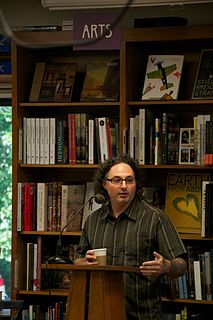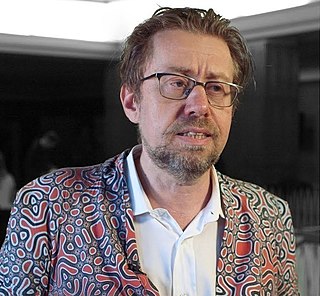A Quote by Paul Madonna
On to the Next Dream became about much more than me facing a challenging situation; it became about how all of us feel when we're thrust unexpectedly into change. It's about how we all hold onto personalized visions of our lives, our city, and our culture, and what we do when reality forces us to confront the impermanence of those visions.
Related Quotes
The very shape of our dreams defines us. We learn about the world and try out our thoughts and visions in them. Our dreams goad us and drive us and summon and sustain us and when we are old they comfort us. Magic is a kind of dream, and love is a dream, and hope is a dream. Without our dreams, there is no sweetness, no purpose to life.
Yet still, there are those special secret moments in our lives, when we smile unexpectedly-when all our forces are resolved. A woman can often see these moments in us, better than a man, better than we ourselves, even. When we know these moments, when we smile, when we are not on guard at all-these are the moments when our most important forces show themselves; whatever it is you are doing at such a moment, hold on to it, repeat it-for that certain smile is the best knowledge that we ever have of what our hidden forces are, and where they lie, and how they can be loosed.
Those who make us believe that anything’s possible and fire our imagination over the long haul, are often the ones who have survived the bleakest of circumstances. The men and women who have every reason to despair, but don’t, may have the most to teach us, not only about how to hold true to our beliefs, but about how such a life can bring about seemingly impossible social change.
Now more than ever, as the role of memory in our culture erodes at a faster pace than ever before, we need to cultivate our ability to remember. Our memories make us who we are. They are the seat of our values and source of our character. Competing to see who can memorize more pages of poetry might seem beside the point, but it's about taking a stand against forgetfulness, and embracing primal capacities from which too many of us have became estrangedmemory training is not just for the sake of performing party tricks; it's about nurturing something profoundly and essentially human.
When I was thinking about all the things that the world had forgotten, it made me think about people who have actually really forgotten everything, and how much of our identity is wrapped up in those memories, and how much of our experience makes us who we are, and remembering those experiences makes us who we are.
Jesus perfected his life and became our Christ. Priceless blood of a god was shed, and he became our Savior; his perfected life was given, and he became our Redeemer; his atonement for us made possible our return to our Heavenly Father, and yet how thoughtless, how unappreciative are most beneficiaries! Ingratitude is a sin of the ages.
It teaches us how to run our lives individually. How to run our families, how to run our churches. But it teaches us how to run all our public policy and everything in society. And that's the reason, as your congressman, I hold the Holy Bible as being the major directions to me of how I vote in Washington, D.C., and I'll continue to do that.
These days, more than any other time, we are worried about our personal life, our private life. When we talk about our private life, it means our home, our body even. It seems that when we want to have calmness in this world, we make a wall around us. This gives us a very calm environment, and when we feel that somebody is intruding into that, it makes us very angry and we feel we have to do something about it.
It didn't really change my opinion about [Edward] Snowden all that much, but I definitely feel like as a culture, it gave us information that generated a responsibility to protect ourselves as much as we can and also a responsibility to hold our government accountable to honoring our constitutional rights.








































